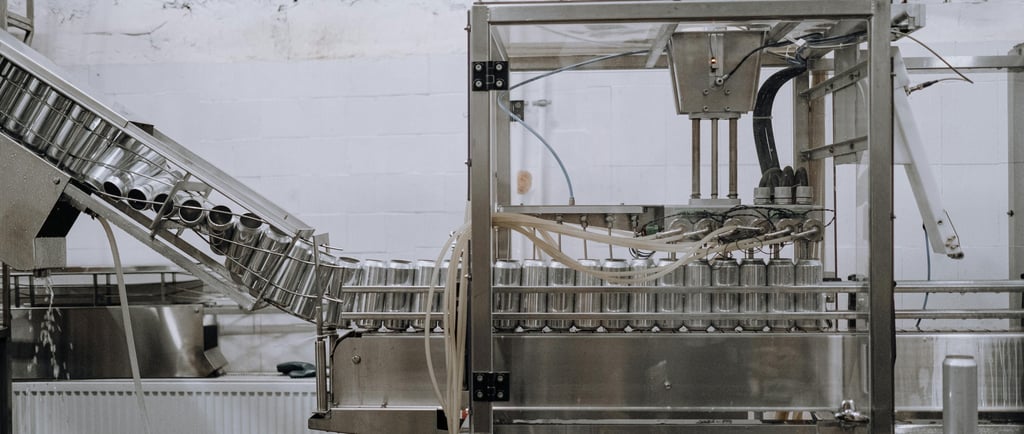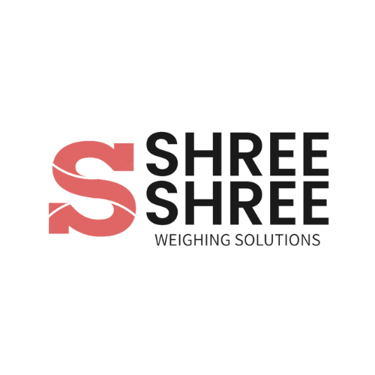The Role of Weighing Scales in the Chemical Industry
The chemical industry is one of the most dynamic and complex sectors globally, producing a wide variety of chemicals used in manufacturing, agriculture, pharmaceuticals, and even consumer products. Accurate measurements are crucial in this industry, where even the smallest variations in the quantities of raw materials can lead to significant changes in the final product. Weighing scales play a vital role in ensuring precision, safety, and efficiency throughout the entire chemical production process. This blog explores the essential role that weighing scales play in the chemical industry, focusing on their importance in formulation, quality control, compliance, and safety.
6/25/20255 min read


1. Precision in Raw Material Measurement
The foundation of any successful chemical reaction is the precise measurement of raw materials. Inaccurate weighing of chemicals, catalysts, and other ingredients can cause reactions to go awry, leading to the production of faulty or dangerous products.
High-precision balances are essential for accurately weighing chemicals, ensuring that the correct amount of each ingredient is used.
In the chemical industry, analytical balances are commonly employed to measure even the smallest quantities with high accuracy.
By using weighing systems that offer precision and accuracy, manufacturers can ensure that every batch meets the required chemical specifications, leading to better product consistency and quality.
2. Ensuring Safe Chemical Handling
The chemical industry involves working with a wide range of substances, some of which can be hazardous. Weighing scales are not only used to measure the right quantities but also play a crucial role in safety and risk management.
Explosion-proof and ATEX-certified weighing scales are often used in environments where flammable or volatile chemicals are handled.
Automatic weighing systems ensure that hazardous chemicals are measured correctly, reducing human error and the risk of accidents in the workplace.
With the use of safety-conscious weighing equipment, companies can ensure safe chemical handling, preventing mishaps that could lead to accidents, environmental contamination, or costly damage.
3. Supporting Chemical Formulation and Mixing
The chemical formulation process is at the heart of many chemical manufacturing operations. Whether it's producing paints, polymers, cleaning agents, or adhesives, getting the right chemical composition is essential for creating a high-quality end product. Weighing scales are critical in ensuring that the right amounts of each substance are mixed together.
Batch mixing scales are used to weigh chemicals accurately before they are mixed, ensuring the correct proportions are achieved.
Formulation balances help ensure that the precise ratios of chemicals are maintained for product consistency and performance.
By incorporating automated weighing systems in the formulation process, chemical manufacturers can streamline production, reduce errors, and achieve uniformity across all batches.
4. Ensuring Quality Control and Consistency
In the chemical industry, product consistency is key. Small deviations in ingredient quantities can result in significant differences in the properties of the final product, which can affect its performance, safety, and marketability.
Weighing scales are used throughout the production process to ensure the consistency of raw materials, intermediate products, and final formulations.
Quality control laboratories rely on analytical balances to perform tests on chemical samples, ensuring that each batch meets stringent industry standards.
By using high-precision weighing equipment, chemical manufacturers can maintain quality control, minimizing variations in the product and ensuring it consistently meets specifications.
5. Supporting Regulatory Compliance
The chemical industry is one of the most regulated sectors in the world. Manufacturers must comply with a range of national and international standards, including those set by organizations like the ISO, EPA, and OSHA. Weighing scales play a crucial role in ensuring that chemical manufacturers meet these regulatory standards.
Legal metrology-certified weighing systems ensure that the weights used in chemical production are accurate, helping manufacturers avoid penalties or non-compliance.
Regulatory bodies often require manufacturers to keep detailed records of ingredient quantities and formulations, and automated weighing systems help provide the necessary documentation for audits and inspections.
With certified weighing solutions, chemical companies can ensure that they are in full compliance with local and international regulations, helping them avoid costly fines and legal issues.
6. Optimizing Chemical Production Processes
Efficiency is key in the chemical industry, where production volumes are high, and operational costs are closely monitored. Weighing scales contribute to process optimization by providing fast and accurate measurements that streamline operations and minimize waste.
Automated dispensing systems can weigh chemicals and deliver them directly to production lines, improving speed and reducing the need for manual labor.
Batch weighing systems ensure that the correct amount of each ingredient is added at the right time in the production process, enhancing production efficiency.
By utilizing automated weighing systems, chemical manufacturers can increase throughput, reduce waste, and enhance cost efficiency, leading to greater profitability.
7. Ensuring Accurate Packaging and Distribution
Once a chemical product is manufactured, it must be accurately packaged and labeled for shipment. Weighing scales are integral in this step, ensuring that each package contains the correct amount of product.
Checkweighers are used to verify that the weight of the packaged product meets the required specifications, ensuring consistency in product size and weight.
Labeling scales help ensure that the correct weight is indicated on the product label, meeting regulatory requirements and avoiding issues with customs or consumer complaints.
Weighing scales in the packaging process help ensure accuracy and consistency in product distribution, preventing costly mistakes and ensuring customer satisfaction.
8. Reducing Material Waste and Improving Sustainability
The chemical industry is increasingly focused on improving its sustainability and reducing its environmental footprint. Accurate weighing helps reduce material waste by ensuring that only the required amount of raw materials is used in the manufacturing process.
Weighing systems ensure that chemical quantities are measured precisely, reducing overuse of expensive or hazardous materials.
Sustainable practices are supported by accurate weighing, which helps minimize resource consumption and waste generation.
By adopting automated weighing systems, chemical manufacturers can enhance their sustainability efforts by reducing waste and improving the overall environmental impact of their operations.
9. Enhancing Chemical Research and Development
The research and development (R&D) phase is crucial for developing new chemical products and improving existing ones. Weighing scales are essential in the R&D process, where small-scale formulations and precise measurements are critical to ensuring the success of new chemical formulations.
Microbalances and analytical balances are used to weigh extremely small quantities of chemicals during experiments.
Precision weighing systems help researchers accurately measure chemicals during the testing and development stages of new products.
By using high-precision weighing systems, chemical companies can support innovation and create new formulations with the right properties and performance characteristics.
10. Traceability and Batch Control
In the chemical industry, traceability is crucial for monitoring the entire lifecycle of a product. Weighing scales provide accurate records of the quantities used in each batch, ensuring that all ingredients and formulations are traceable.
Batch control systems integrated with weighing scales provide complete traceability for each product, from the raw materials to the finished product.
If issues arise in the manufacturing process, accurate records of weight measurements help pinpoint the source of the problem, ensuring quality control and safety.
With automated weighing systems, chemical manufacturers can maintain full traceability for every batch, ensuring the integrity of the production process.
Conclusion
In the chemical industry, precision and accuracy are paramount, and weighing scales are essential tools for achieving both. Whether it’s for raw material measurement, formulation, quality control, regulatory compliance, or safety, weighing systems play a pivotal role in ensuring that every step of the chemical production process meets the highest standards.
At Shree Shree Weighing Solutions, we provide high-precision weighing solutions tailored for the unique needs of the chemical industry. Our equipment helps optimize production efficiency, ensure safety, and maintain quality control, enabling you to meet your business goals and regulatory requirements.
Need Reliable Weighing Scales for Chemical Manufacturing?
📞 Contact us today for precision weighing solutions in the chemical industry.
📍 Visit our Ahmedabad showroom, or schedule a demo at your chemical manufacturing facility across Gujarat.
